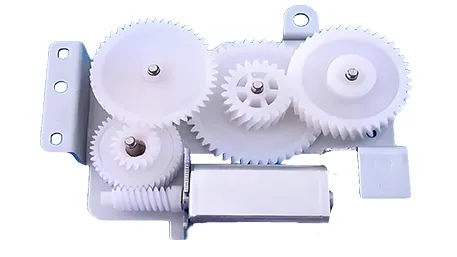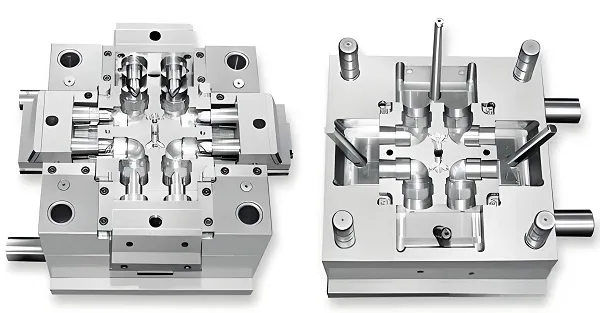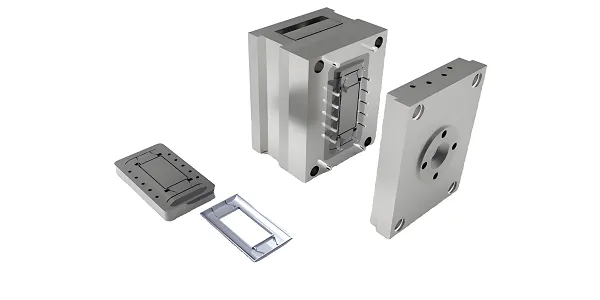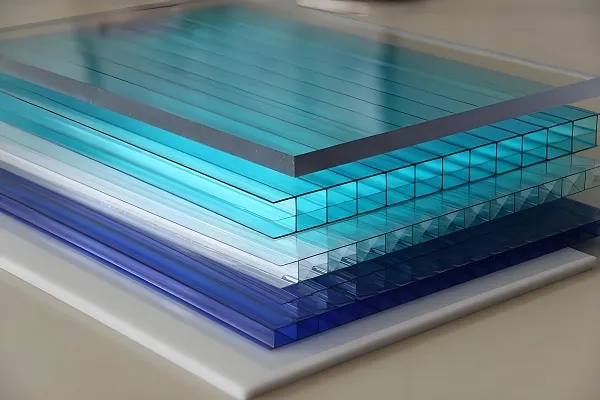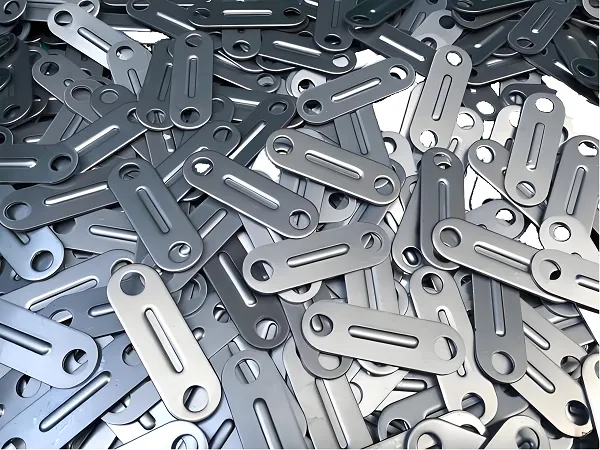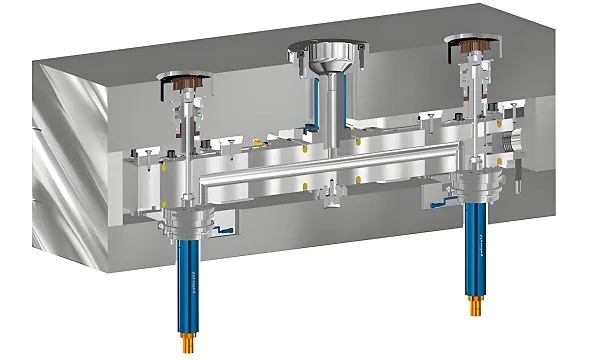Plastic press-in inserts is a technology in which prefabricated parts made of metal or other materials (e.g., rigid plastic, ceramics, glass, etc.) are pressed into or embedded in plastic products through a specific process during or after the molding process of the plastic products. This technology can significantly improve the mechanical properties of plastic products, electrical conductivity, magnetic conductivity and decorative effect, widely used in automotive, electronics, medical and other fields.
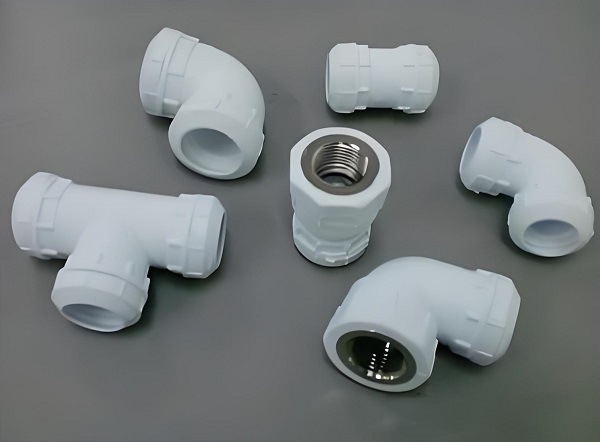
1. Plastic pressed into the insert production process
Mold preparation: according to the design requirements of the insert, the production of the corresponding injection mold, and in the mold to reserve the location and shape of the insert.
Pre-treatment of inserts: cleaning, deburring and other pre-treatment of inserts to ensure that the surface of the insert is clean and smooth, in order to better integrate with the plastic substrate.
Injection Molding: The pre-treated insert is placed in a predetermined position in the mold and then injected with molten plastic. The plastic fills the mold at high temperatures and pressures and wraps around the insert.
Cooling and Curing: After injection molding is complete, the mold and plastic product are cooled together to cure and set the plastic.
Demolding and post-processing: After the plastic product is completely cooled, it is taken out of the mold and subjected to necessary post-processing, such as removal of flying edges, sanding and so on.
2.Customized plastic press-in inserts
Design requirements: according to the specific needs of customers, design the shape, size, material and so on.
Mold customization: according to the design drawings of inserts, make special injection molds.
Material selection: according to the use of the insert environment and performance requirements, select the appropriate plastic and insert materials.
Process Optimization: Optimize the injection process parameters, such as injection pressure, injection speed, mold temperature, etc., according to the characteristics of the insert and the molding requirements of the plastic products.
Quality Inspection: Strict quality inspection of the customized plastic press-in inserts to ensure that the products meet the design requirements.
3.Plastic press-in inserts material
Material: PE, PP, PP, PP, PP, PP, PP, PP, PP, PP, PP
Plastic: PE, PP, ABS, PC, POM, etc.
Metal: brass, silver, copper, aluminum, steel, etc.
Others: hard plastic, ceramics, glass, etc.
Characteristics:
PE: cheap, high strength, wear-resistant, corrosion-resistant.
PP: good processability, good heat resistance, harder than PE, providing higher stiffness and strength.
ABS: high strength, good hardness, wear resistance, high temperature resistance and chemical stability.
PC: transparent, hard, high strength, suitable for making inserts that require high strength and impact resistance.
POM: high rigidity, good strength, high abrasion resistance, good water resistance, with self-lubricating properties.
4. Different materials plastic pressed into the insert characteristics
Products:
PE inserts:
Suitable for the occasions which have strict requirements on cost, and at the same time need certain strength and corrosion resistance.
Tensile strength ≥ 20MPa, bending strength ≥ 10MPa, good wear resistance.
PP inserts:
Suitable for applications requiring high stiffness and strength, such as automobile interior parts.
Tensile strength ≥ 30MPa, bending strength ≥ 15MPa, heat resistance up to 100 ℃.
ABS inserts:
Suitable for occasions with high requirements for strength, hardness and abrasion resistance, such as the shell of electronic products.
Tensile strength ≥40MPa, bending strength ≥60MPa, temperature resistance range -40℃~80℃.
PC inserts:
Suitable for occasions requiring transparency, high strength and impact resistance, such as safety glass, helmets, etc..
Tensile strength ≥60MPa, bending strength ≥90MPa, high transparency, excellent impact resistance.
POM inserts:
Suitable for occasions requiring high wear resistance, self-lubricating properties and rigidity, such as gears, bearings, etc..
Tensile strength ≥ 50MPa, bending strength ≥ 70MPa, excellent wear resistance, low coefficient of friction.
Customized Plastic Press-in Inserts FAQ
Q1: How long is the production cycle of plastic press-in inserts?
A: The production cycle mainly depends on the process of mold making, material preparation and injection molding, which is usually completed within 7-15 working days.
Q2: How to ensure the bonding strength between inserts and plastic substrate?
A: The bonding strength of the inserts to the plastic substrate can be ensured by optimizing the injection molding process parameters, such as increasing the injection pressure and injection speed, as well as selecting insert materials with good processing and bonding properties.
Q3: Can you provide customized plastic press-in inserts service?
A: Yes, we provide one-stop customized service from design, mold making to injection molding to meet customers’ individual needs for inserts.
Q4: How to calculate the cost of plastic press-in inserts?
A: The cost mainly depends on the shape, size, material, quantity of the insert and the cost of making the injection mold. We will provide a detailed quotation program according to the customer’s specific needs.

